Save the Children: Main Events of 2023
A year has passed and a new one is beginning. For Save the Children, 2023 was a year of achievements and successes in development and humanitarian activities and projects. Here are the Save the Children’s highlights for 2023.
1. Strengthening school-based child protection system
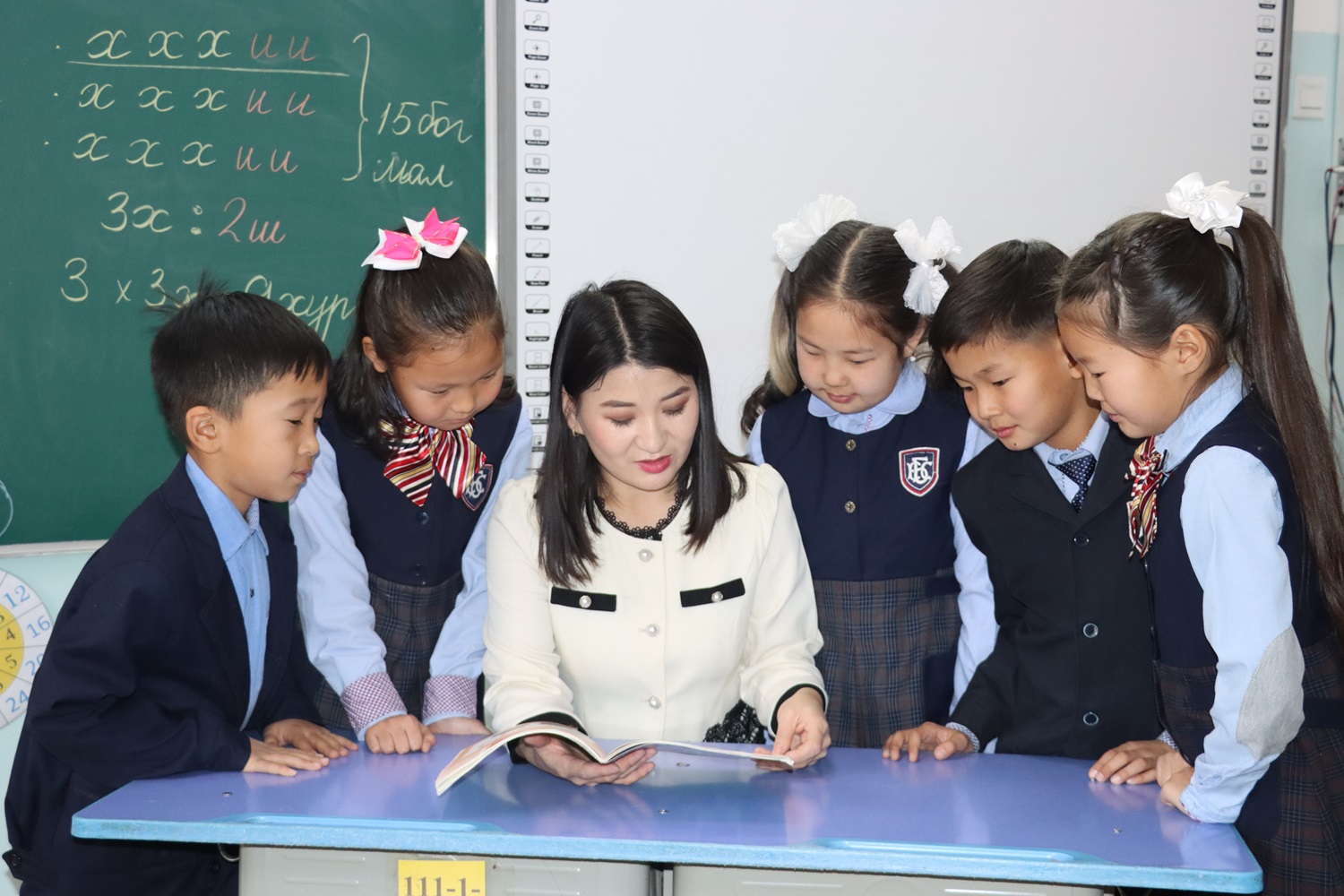
Save the Children began implementing the “Establishing school-based child protection mechanism in Mongolia” project. The project aims to create a collaborative model for effective prevention, early detection and response through the development of school-based child protection mechanisms. A total of 14 schools and 14 child protection multidisciplinary teams from Khan-Uul, Bayangol, Chingeltei, Sukhbaatar, Bayanzurkh districts of Ulaanbaatar city and Gobi-Altai and Khovd aimags are participating in this project.
2. Herders and children from herder families affected by dzud received assistance
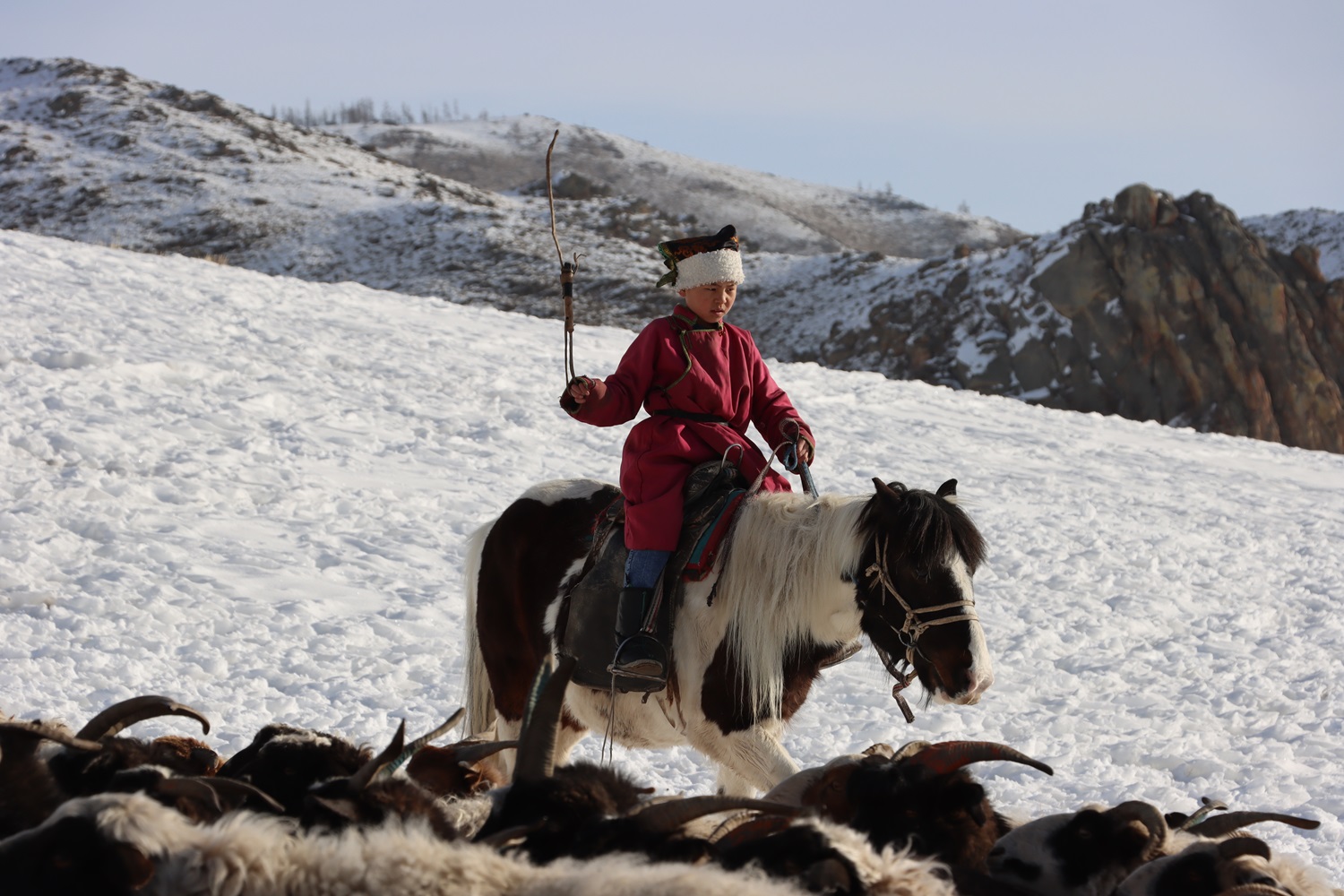
Save the Children has implemented the humanitarian aid program receiving $321,000 in funding. Animal feed and cash assistance were provided to 1,230 herder households in 22 soums of Khovd, Zavkhan, Gobi-Altai, Bayankhongor, and Tuv aimags affected by the dzud disaster. Also, we distributed hygiene kits and psychological first aid manuals to 1030 children from herder families living in school dormitories in 15 soums of Zavkhan, Gobi-Altai, and Khovd aimags, and 644 children staying with the families residing in centers of the same target soums. In addition, 300 children from vulnerable families with incomes below the subsistence minimum received warm shoes. Also, 400 blankets, mattresses, bed linen and sheets were provided to each of 15 soum dormitories.
3. The study of knowledge, attitudes and practices conducted in Mongolia
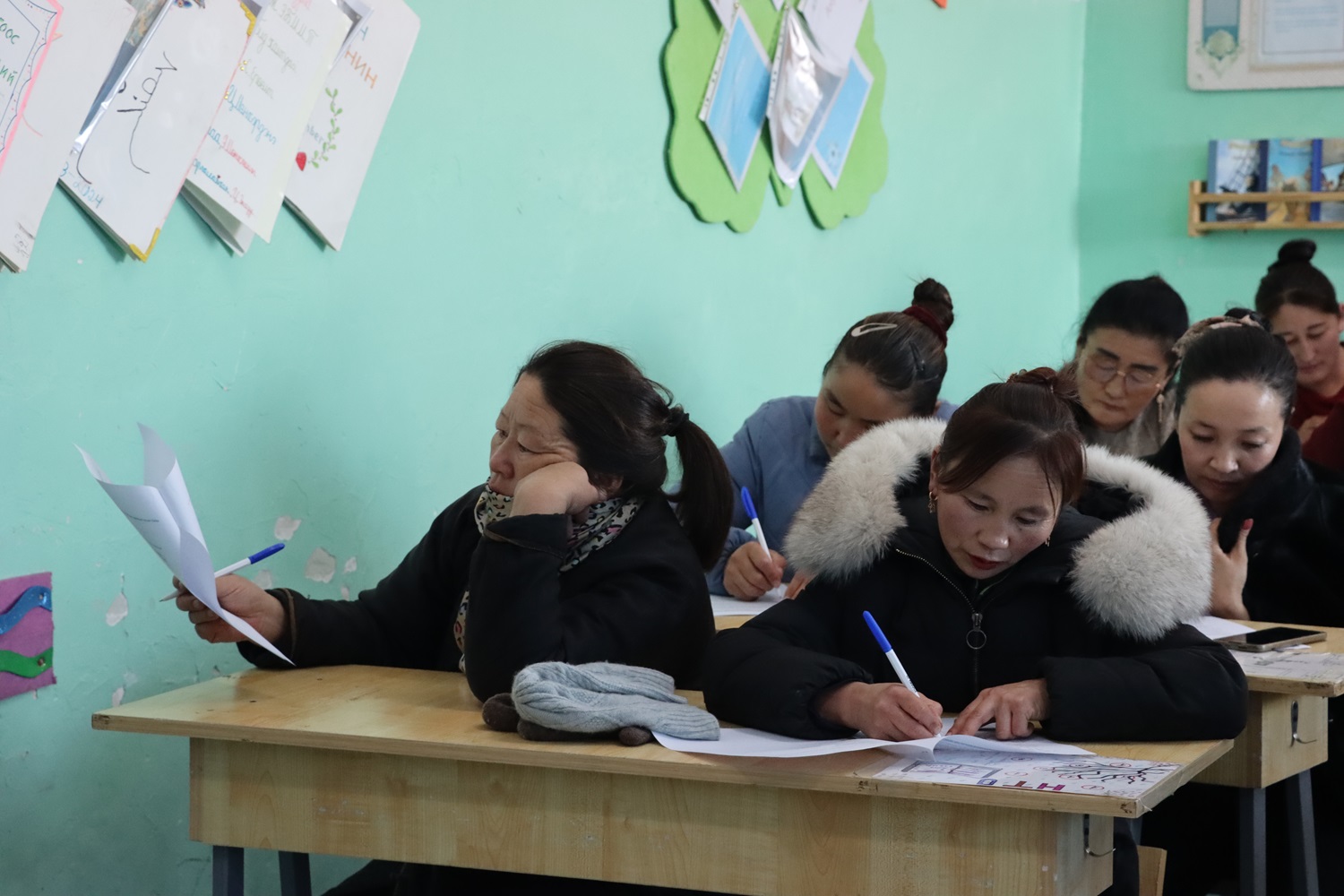
In May 2023, Save the Children successfully concluded a comprehensive KAP survey as part of the project “Protecting Girls from Violence and Exploitation in Mongolia.” This research initiative, conducted in collaboration with the esteemed research organization MMCG, focused on the implementation of a meticulous research methodology developed by Save the Children International, addressing the knowledge, attitudes, and practices of adults about child protection. The outcomes of this survey have been formally presented to the members of the Steering Committee overseeing both the “Protecting Girls from Violence and Exploitation in Mongolia” project and the “Establishing School-based Child Protection Mechanism in Mongolia” project. The insights gleaned from this research endeavor are poised to significantly contribute to the ongoing efforts to protect girls from violence and exploitation in Mongolia. The comprehensive report, encapsulating the methodologies, findings, and recommendations, is now available to the public and can be accessed via our official website. This transparent dissemination ensures that the broader community and stakeholders benefit from the valuable insights garnered through this research initiative.
4. Provided aid to people and children affected by the flood
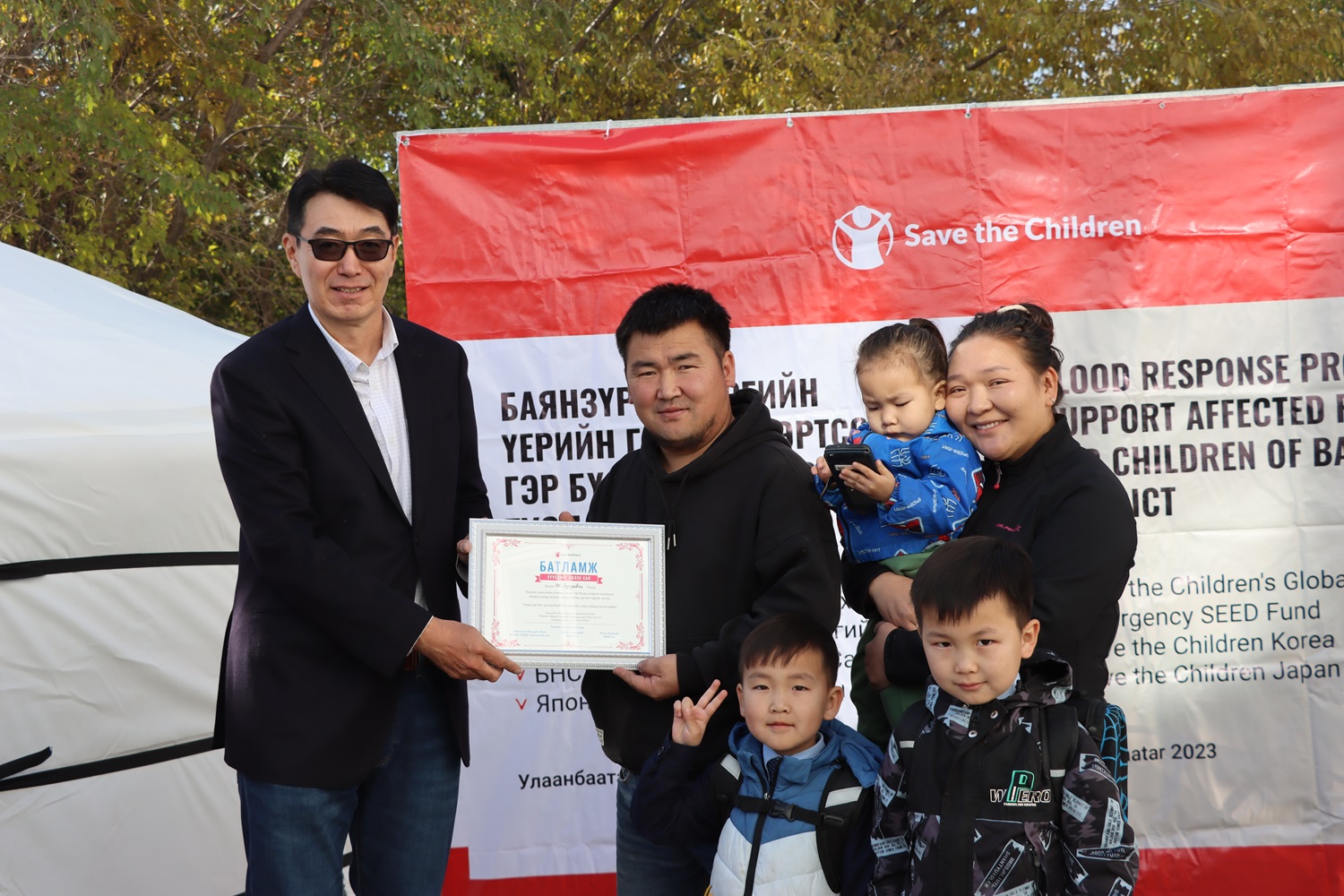
On August 5, 2023, a heavy rainfall occurred Ulaanbaatar, and the subsequent flooding caused material and emotional damage to the residents of the 21st, 27th and 29th khoroo of Bayanzurkh district. Save the Children implemented a $110,000 project to assist families and children affected by flooding in Bayanzurkh district. 1,237 people received assistance, including 403 children. Among them, 288 children received school uniforms and sports shoes, school students and kindergarten children received school bags and supplies, and 278 children received two types of multivitamins. We also donated five-walled gers to 25 families from these three khoroos; blankets, mattresses, sheets, and pillows for children up to 10 years of age to 108 families; blankets to 125 families; 50-liter containers for storing and carrying water to 125 families, and household disinfectants to 250 families. In addition, trainings on psychological first aid and group psychotherapy were organized for children and adults.
5. ESEL included in the main curriculum for vocational education
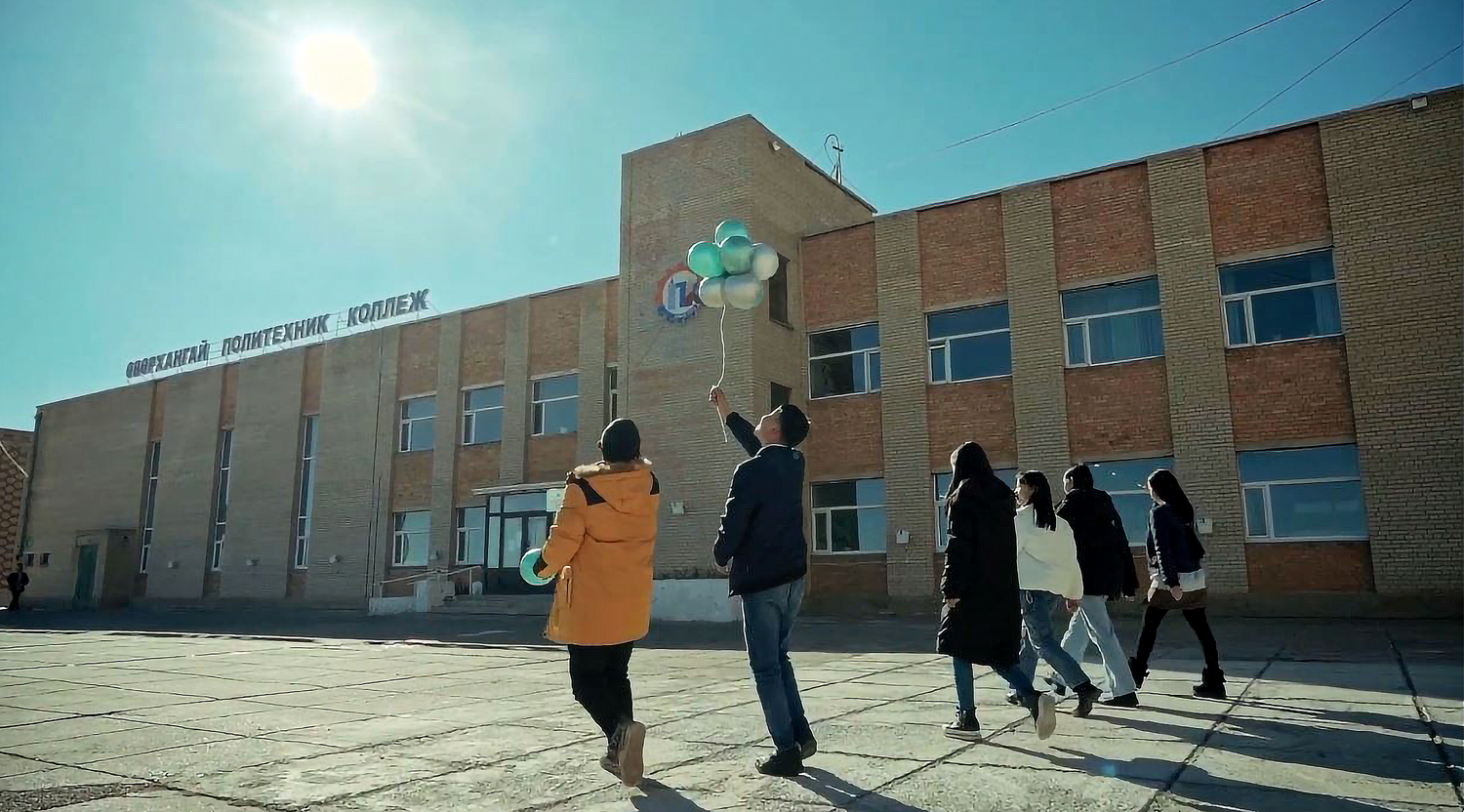
According to Order No. A-278 of the Minister of Education and Science of Mongolia dated June 28, 2023, the Entrepreneurship Focused Socio-Emotional Skills Learning (ESEL) program has become one of the core subjects of vocational education curriculum in polytechnical colleges and vocational education schools. ESEL is a training program of the Entrepreneurship-Focused Socio-Emotional Skills for the Most Vulnerable Youth in Rural Mongolia project implemented by the Save the Children.
6. Strengthened emergency response capacities during trauma
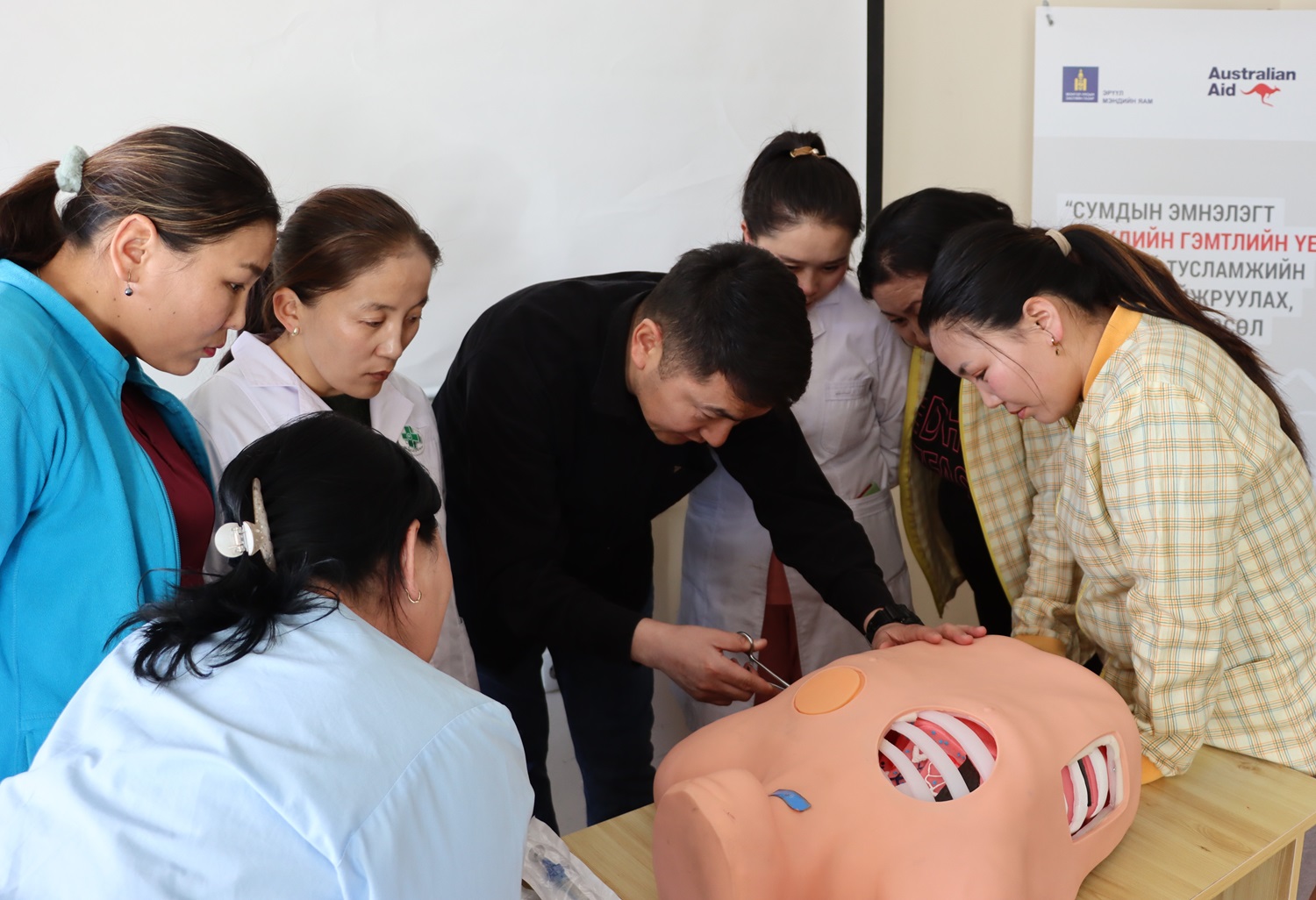
“Strengthening capacity of pediatric trauma care and child first aid responses in rural areas” project has been implemented in Erdene and Altai soums of Gobi-Altai aimag and Saikhan-Ovoo soum of Dundgobi aimag. The project aimed to increase preparedness and improve trauma care for children in rural areas and to reduce mortality, morbidity and complications from trauma. As part of the project, a full set of necessary medical equipment such as stretchers, splints for neck, spine and limbs was delivered to soum health centers.
7. National conference on exchange of experience of student entrepreneurs organized
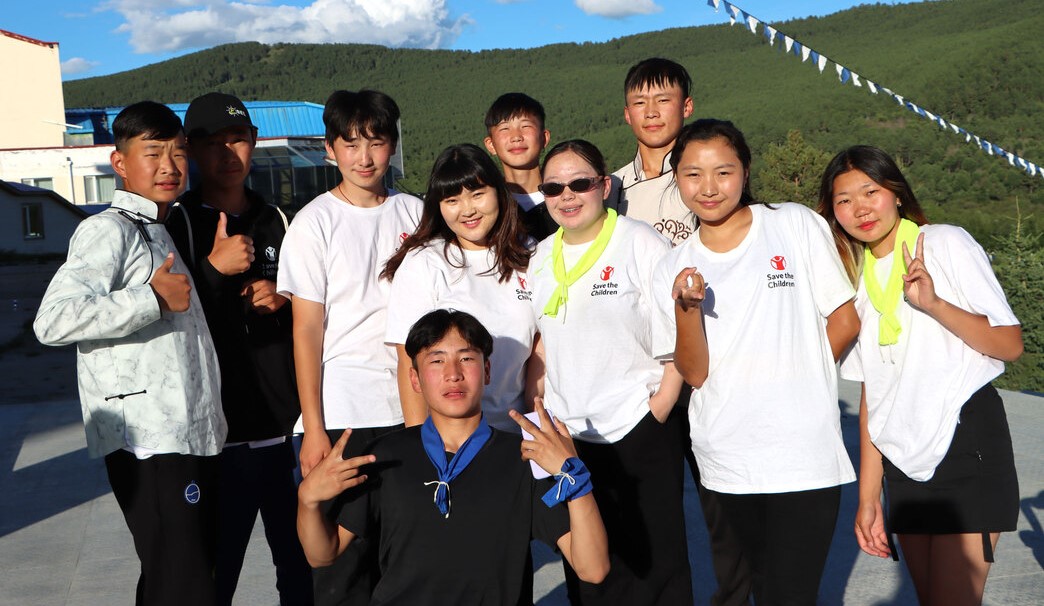
A national conference was held at the Nairamdal International Children’s Camp to share experiences of students implementing micro-projects with grants from the project “Entrepreneurship-Focused Socio-Emotional Skills for the Most Vulnerable Youth in Rural Mongolia”. Two representatives from each of the 39 target soum schools attended the event, totaling 78 children and 8 teachers.
8. Organized a trip for international journalists
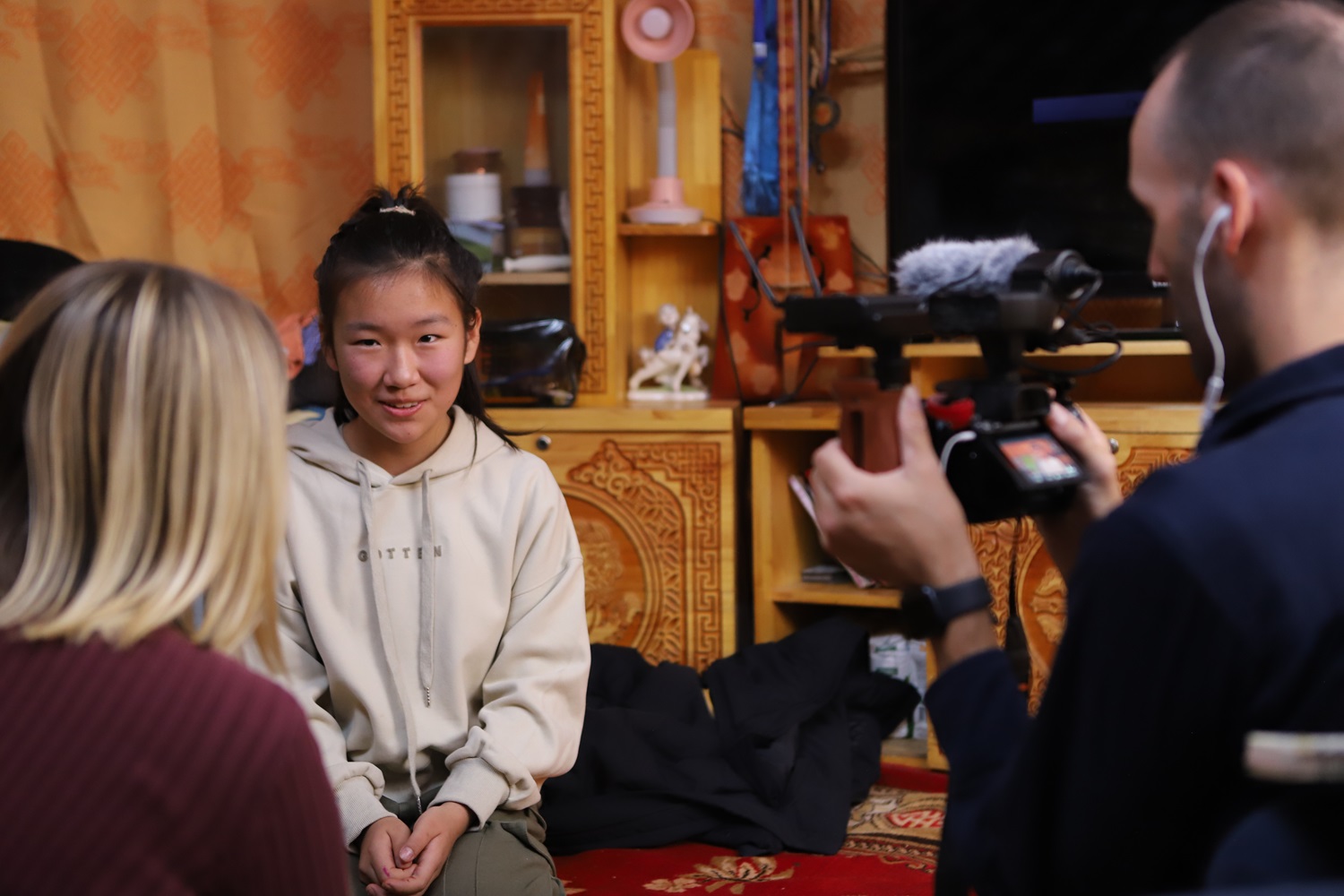
At the invitation of Save the Children, international journalists visited Mongolia to learn about the program, meet with herders and conduct interviews and reports on how drought, dzud and climate change are affecting daily life. The team of journalists included media directors, managers and staff from Save the Children’s Australian, Japanese and international coalitions, as well as reporters and cameramen from the US-based news site Huffpost, Britain’s Guardian newspaper and Australia’s ABC News.
9. The Promoting Inclusive Education for Every Last Child in Mongolia-2 project shared its results and best practices

The national workshop on “Inclusive Education” was organized in Ulaanbaatar to share results and best practices under the project “Promoting Inclusive Education for Every Last Child in Mongolia-2”. The national workshop was attended by 32 inclusive education specialists from the education departments of 21 aimags and Ulaanbaatar city districts. The workshop participants learned about the training modules and manuals developed under the project, visited target schools and familiarized themselves with the best practices and achievements of the project.
10. The “You’re Not Alone” social media campaign reached over 37 million people including teen girls, their parents and caregivers
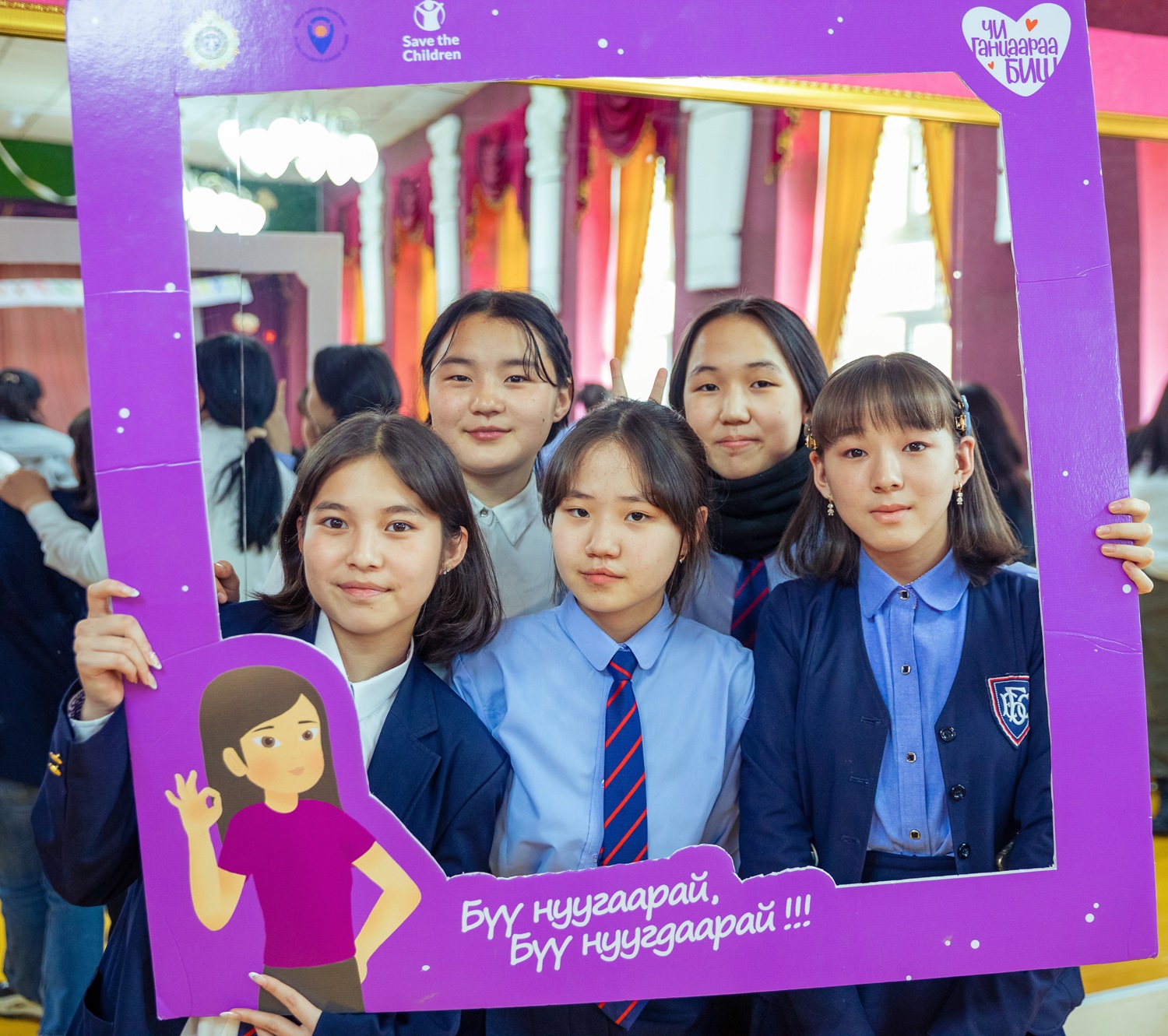
The social media campaign “You are not alone” has shown that it is very effective to use the results of surveys examining their interests and opinions when communicating any information about prevention to the target group. The campaign is divided for each target group and organized in 3 phases for girls, parents, guardians and specialists.

